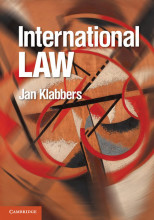International criminal law
7 important questions on International criminal law
What are the three types op jurisdiction of the ICC?
- Material juridisction: which crimes?
- Temporal juridiction: only crimes after entry into force (2002-07-01);
- Formal jurisdiction: how does a situation come before the ICC?
How can the ICC's jurisdiction be 'triggered'?
- State parties to the Statute may refer a situation to the prosecutor;
- The Security Council acting under Chapter VII may refer a situation to the prosecutor;
- The prosecutor may start investigations proprio motu.
Art 13 ICC
What are the general principles of international criminal law?
- Principle of legality:
- Nulla poena sine lege Art. 23
- Individual criminal responsibility Art. 25
- Irrelevance of official capacity Art. 27
- Intent and knowledge -> mental element mens rea Art. 30
- Higher grades + faster learning
- Never study anything twice
- 100% sure, 100% understanding
What are crimes against humanity?
On what basis can individual be held responsible for crimes under the ICC Statute?
- For the committing of crimes;
- For having ordered crimes.
Art 25 ICC
What is the principle of most extradition treaties?
Are abduction and deportation a viable alternative to extradition?
The question on the page originate from the summary of the following study material:
- A unique study and practice tool
- Never study anything twice again
- Get the grades you hope for
- 100% sure, 100% understanding































